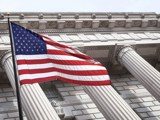Special Webinar Recap | How Are Employers Impacted By The “One Big Beautiful Bill”?

On July 17, Adams Keegan’s advisory team, including Charles Rodriguez, Marty Barton, Brandon Roland, and Cindy Mastrofrancesco, hosted a special webinar to discuss the One Big Beautiful Bill (OBBB) Act and how it will impact employers. Our team covered highlights from the recent legislation and how it affects taxes on tips and overtime, health plans, ERTCs, child care, and other employee benefits programs.
Didn’t catch the webinar? You can access the recording here.
What “no tax on tips and overtime" really means
While employees are still taxed on tips and overtime through payroll, the law now allows for deductions on year-end federal tax returns. For qualifying tips, employees may deduct up to $25,000 per year if they work in a tipped occupation. These tips must be voluntary, as opposed to service charges or automatic gratuities, and reported appropriately.
Similarly, for overtime wages, the deduction applies only to the premium portion, that is, the “half-rate” over 40 hours, and is capped at $12,500 per year. Employees must include their Social Security number to qualify for either deduction case.
These deductions are claimed by employees, not handled through payroll. Employers should still be proactive in educating employees to avoid confusion when they see taxes withheld from tips or overtime earnings.
Modifications to 1099 reporting
Beginning in 2026, the reporting threshold for Form 1099-NEC and 1099-MISC will increase from $600 to $2,000, significantly reducing paperwork and administrative burden for businesses issuing payments to non-employees.
This change is designed to ease compliance, especially for small businesses that engage contractors or issue irregular payments. However, it’s important to note that income earned below the new threshold is still taxable and contractors are responsible for reporting this on their personal returns, even if no 1099 is issued.
In addition, Form 1099-K reporting thresholds will revert to the original standard of $20,000 and 200 transactions, retroactive to 2022. This means third-party payment networks like Venmo or PayPal will only need to issue 1099-Ks if both thresholds are met.
Expansions and modifications to the 2017 TCJA
The OBBB made several notable TCJA provisions permanent and introduced enhancements that matter to business owners. Employers can continue to deduct up to 50% of food and beverage costs provided to employees. Reimbursements for relocation remain taxable to employees, and the previously available $20 per month bike commuting reimbursement has been permanently repealed. Additionally, the Child Tax Credit has increased from $2,000 to $2,200 per child, beginning in 2025.
One major enhancement is the permanent expansion of the Paid Family and Medical Leave (FML) tax credit. Originally part of the 2017 TCJA, this credit allows employers to claim 12.5% to 25% of wages or qualifying insurance premiums for employees on leave. Now, eligibility extends to employees with just six months of service, working at least 20 hours per week. Employers offering paid leave beyond state-mandated minimums may now also qualify for the credit, encouraging greater benefit offerings.
Changes for health care accounts and telehealth
Changes to Health Savings Accounts (HSAs) and telehealth coverage aim to improve access and affordability. Starting in 2026, Bronze and Catastrophic Affordable Care Act (ACA) plans qualify as high-deductible health plans (HDHPs), and direct primary care arrangements will no longer disqualify HSA eligibility. Additionally, telehealth can now be offered pre-deductible without affecting HSA status, a provision now made permanent and retroactive to January 1, 2025.
The team also discussed dependent care programs and child care credits, tax adjustments for educational expenses, the introduction of Trump Accounts, the end of employer retention tax credits, and more.
Watch the full webinar here and give yourself about 40 minutes to take a deep dive into the discussion.


Posted:
Adams Keegan